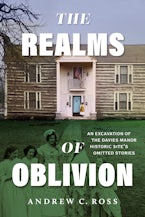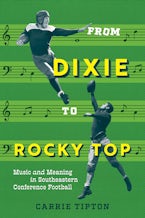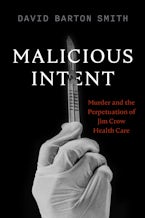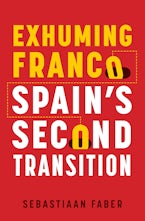- Home
- Black, White, and Catholic
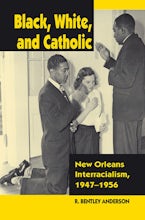
Black, White, and Catholic
New Orleans Interracialism, 1947-1956
Anderson leads readers through the tumultuous years just after World War II when the Roman Catholic Church in the American South struggled to reconcile its commitment to social justice with the legal and social heritage of Jim Crow society. Though these early efforts at reform, by and large, failed, they did serve to galvanize Catholic supporters and opponents of the Civil Rights Movement and provided a model for more successful efforts at desegregation in the '60s.
As a Jesuit himself, Anderson has access to archives that remain off-limits to other scholars. His deep knowledge of the history of the Catholic Church also allows him to draw connections between this historical period and the present. In the resistance to desegregation, Anderson finds expression of a distinctly American form of Catholicism, in which lay people expect Church authorities to ratify their ideas and beliefs in an almost democratic fashion. The conflict he describes is as much between popular and hierarchical models of the Church as between segregation and integration.
This book has been made possible through a grant from the Louisiana Endowment for the Humanities, a state affiliate of the National Endowment for the Humanities.
R. Bentley Anderson is Assistant Professor of history at Saint Louis University.
. . . important addition to the history of the foundations of the Civil Rights Movement . . . Highly recommended.
--Choice
The book is a fascinating history of New Orleans Catholics during the early years of desegregation. . . . Anderson's book does a service to American church historians by revealing the contribution of black and white Catholics to the story of civil rights in the deep South. He has placed the Catholic Church in its rightful place in one of the most crucial periods of our American history.
--America: The National Catholic Weekly
A landmark study in United States Catholic history.
--The Catholic Historical Review
"Anderson provides a skillful examination of Catholic responses to the challenges of the Civil Rights Movement within the archdiocese of New Orleans."
--Journal of Southern Religion
The complex story Anderson narrates tracks the place of religion in multiple strands of advocacy for and resistance to integration. . . . Black, White, and Catholic broadens our understanding race, religion, and the American South, especially as it highlights the role of New Orleans and of Catholicism in shaping support for and resistance to the civil rights movement. . . . Anderson reveals an important moment in New Orleans, where the ebb and flow of integration in the religious sphere has long shaped the racial fabric of the city and the region.
--The Journal of American History
His compelling portrayal of their efforts brings a much needed addition to understanding the southern Catholic Church's role in furthering and resisting integration.
--Journal of American Ethnic History


